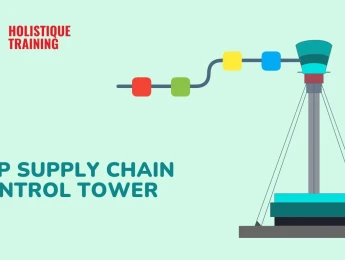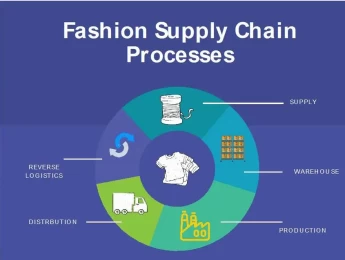Supply chain professionals continuously confront the challenge of improving service levels and simultaneously reducing costs to produce desired business outcomes. Cost reduction efforts incur risk, which is magnified in global supply chains.
This course provides strategies to avoid, mitigate, or divert these risks to ensure that your organisation continues to excel. You will explore essential concepts and methods to optimise the balance between overseeing highly responsive supply chains and managing costs. The course focuses on tangible approaches to optimising inventory and supplier management, identifying risk, and rethinking your entire approach to the supply chain.
Upon completion of this course, participants will be able to:
- Examine and analyse your organisation’s supply chain practices.
- Use inventory management strategies to optimise working capital availability and profits.
- Assess suppliers and build relationships that provide substantial business results.
- Identify your supply chain risks and employ risk management tools and techniques.
- Outline steps to improve costs and service within your supply chain.
This course is intended for:
- Supply Chain Professionals.
- Sourcing, Procurement, and Supplier Management Professionals.
- Production and Manufacturing Professionals.
- Anyone looking to understand best practices in supply chain.
This course uses a variety of adult learning styles to aid full understanding and comprehension. Participants will review case studies to highlight key areas of importance and possible areas for faults. They will be supplied with the best tools required for learning exercises to improve their skills. Participants will analyse the examples to thoroughly understand how these skills, techniques and methods apply in the workplace.
Day 5 of each course is reserved for a Q&A session, which may occur off-site. For 10-day courses, this also applies to day 10
Section 1: Overview of Supply Chain
- Define standard supply chain terms.
- Describe the types of supply chain models and process frameworks.
- Examine performance gap analysis.
- Explore the role of competitive advantages, demand, and customers on supply chains.
- Discuss Global Supply Chains and their challenges.
Section 2: Unlock Working Capital Using Inventory Management and Optimisation
- List the types of inventory.
- Examine how to maximise inventory turns using procurement strategies.
- Accelerate the cash conversion cycle (CCC).
- Outline strategies, paths, and tools to effectively manage supplier relationships.
- Explain a compelling reasoning for change.
Section 3: Productive Strategies for Outsourcing
- Identify if supplier relationships are transactional or outcome-based.
- Define the measurable required outcomes.
- Develop practical outsourcing contracts.
- Plan a pricing model that fosters desired behaviours.
- Evaluate the trade-offs between cost and service.
Section 4: Identify Supply Chain Risks and Vulnerabilities
- Recognise internal supply chain risks.
- Use PESTLE analysis to analyse and monitor external risks.
- Describe the principles of risk management.
- Evaluate and prioritise risks.
- Compare contingency planning and risk management planning
Section 5: Re-envision your Supply Chain
- Outline the reasonings and approaches to performance management.
- Identify, describe, and monitor your KPIs.
- List the benefits of incentivisation and continual improvement.
- Reimagine and re-engineer your supply chain to reduce risk.
- Examine the impact of organisational development on supply chains.
Upon successful completion of this training course, delegates will be awarded a Holistique Training Certificate of Completion. For those who attend and complete the online training course, a Holistique Training e-Certificate will be provided.
Holistique Training Certificates are accredited by the British Assessment Council (BAC) and The CPD Certification Service (CPD), and are certified under ISO 9001, ISO 21001, and ISO 29993 standards.
CPD credits for this course are granted by our Certificates and will be reflected on the Holistique Training Certificate of Completion. In accordance with the standards of The CPD Certification Service, one CPD credit is awarded per hour of course attendance. A maximum of 50 CPD credits can be claimed for any single course we currently offer.
Categories
Procurement, Warehouse, Logistics & Supply Chain,- Course Code PO1-123
- Course Format Classroom, Online,
- Duration 5 days














